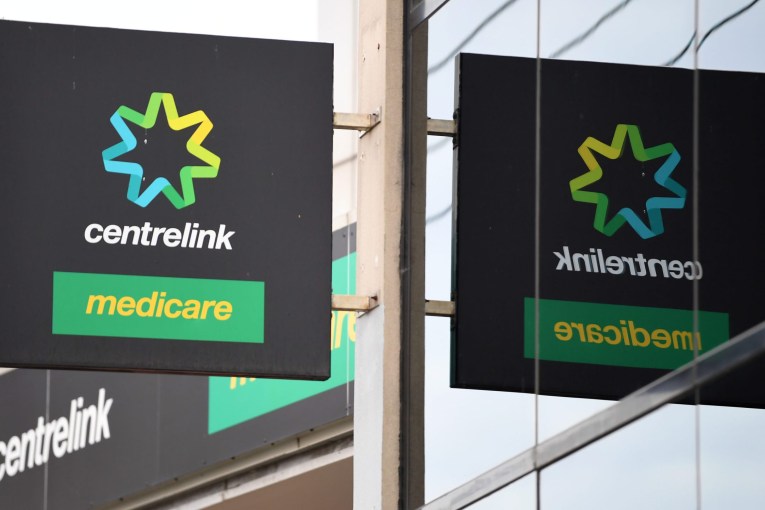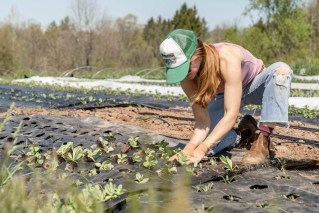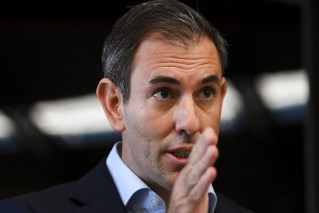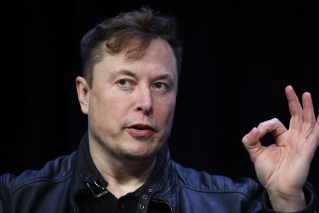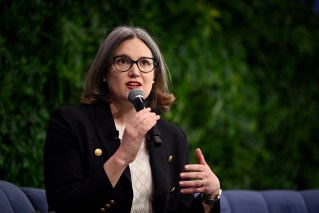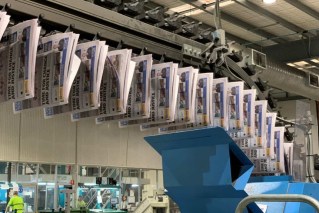From a garage to the Super Bowl: Vald won over world but now wants to stay home
Sam James and Laurie Malone were a global company before they had even managed to get out of a Brisbane share house in 2015.

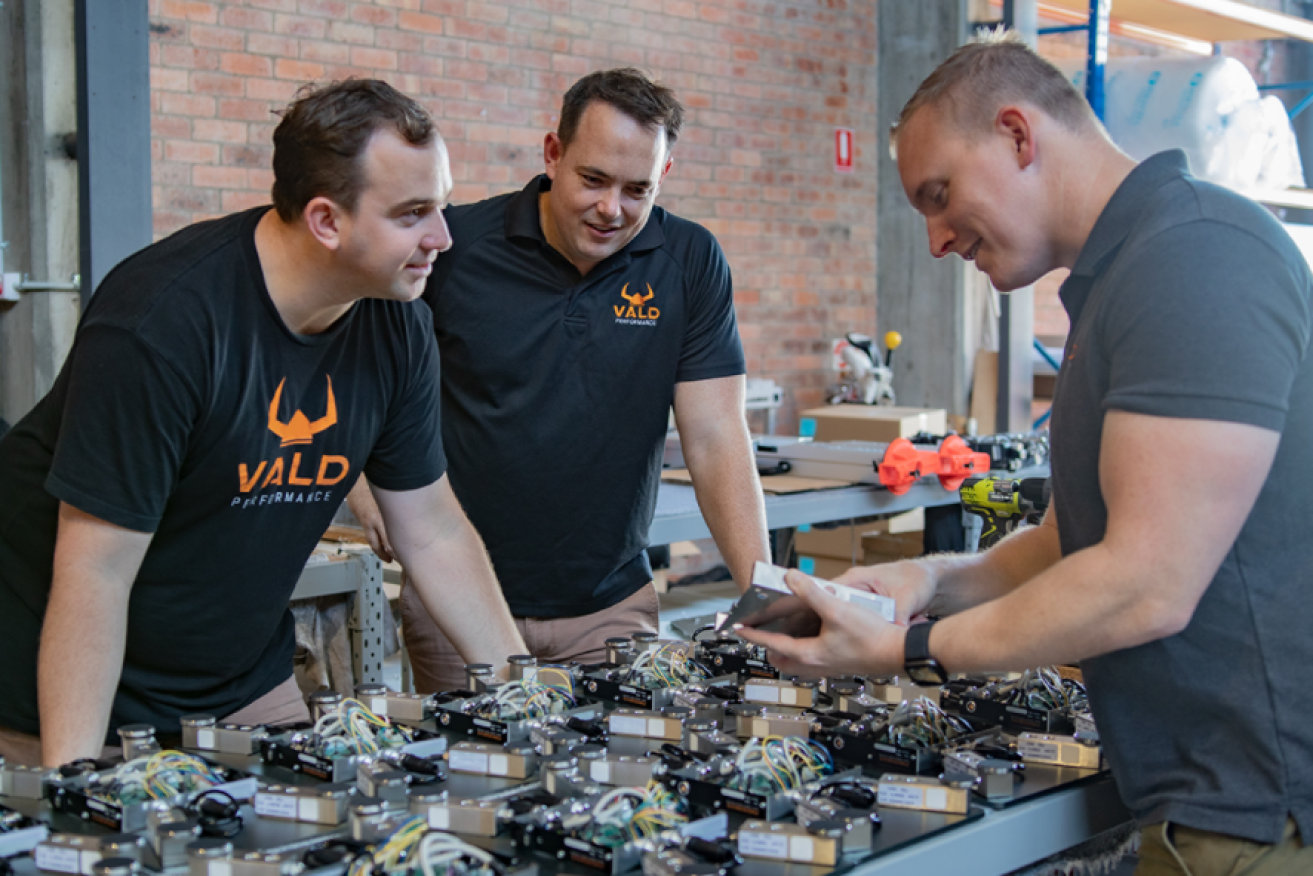
Vald's Chris Rowe (chief commercial officer), Laurie Malone (chief Executive and co-founder) and Sam James (chief strategy officer and co-founder).
It’s a common theme of some of the highly successful tech companies emerging in Brisbane. Go1, Tritium and Vald all had their start in garages before emerging to become global successes.
But Vald, an outfit whose products are able to give insights into the injury risks of everyone from elite sportspeople to ordinary clients of physiotherapists, was getting interest from soccer’s English Premier League while the startup company was still emerging from the garage.
“When we started the business we hit the ground running. The first 10 products that went out the door all went to large international sporting franchises. Fairly soon after that we were shipping to AFL and NRL, but of the 10 products that went out the door five were for English Premier League teams,’’ James told In Queensland.
“It very much started in the basement. We were building prototypes in the share house that Laurie and I lived in at the start.
“When we started shipping the first product it pretty quickly paved the way for the second product which paid for the acquisition of our third product.”
The company produces high performance human measurement technologies and it’s the data from that tech that makes the money. Customers pay a yearly subscription rather than buy equipment.
The first piece of equipment was an invention that came out of QUT, but it initially struggled to get commercialised until James and Malone saw the potential.
The EPL teams also saw the groundbreaking results from the technology from research papers published by the inventors, two sports scientists at QUT Dr Tony Shield and his PhD student Dr David Opar, who remain as shareholders along with the university.
That meant the EPL clubs were on the phone trying to get buy the technology when it was still in the prototype stage.
“So we were global from the very start thanks to that research. The product also lived up to the hype and has gone on from there.
James said the technology wasn’t a treatment. Instead, it provided data to clinicians on the viability or strength of say, a hamstring, which allowed them to make better decisions about the treatment of a patient.
There were now a range of other products and Vald has sold to all the EPL teams, 22 NFL teams and 15 American baseball teams. The military is now a growing customer and uses the equipment in its special forces and other areas.
It now has about 3000 clients, including the Los Angeles Rams, who are playing in the American NFL Super Bowl. There are about 130 staff.
The significance is that an athlete in the EPL and NFL costs a sporting franchise millions if they are sitting on a bench injured. Entire sporting careers have been destroyed by persistent injuries, or even an athlete’s belief that they are injured when they may not be.
“In elite sport the justification for getting our products is pretty easy particularly for teams that have a spate of injuries they need to address,’’ he said.
“Our products are typically a few thousand dollars a year which is peanuts compared to what they are paying the players so if it can keep someone on the pitch for one extra game then it has paid for itself a few times over.
“The elite sport market is our biggest bread and butter, but we have a pretty mature product suite for them whereas we are spending a lot of time and effort tailoring software to suit physiotherapists and allied health practitioners,’’ he said.
The allied health market dwarfs the elite sporting market. James estimates there are about 1 million physiotherapist businesses around the world. On top of that, there are hospitals and other clinicians.
James said his partner, Laurie Malone, talks about how the Vald equipment can tell clinicians how a 220 pound (100kg) running back should look but the big business was in being able to tell clinicians how a 70-year-old who wants to pick up their grandchildren after hip surgery should look.
“Over the past six to 12 months significantly more sales in Oceania are coming out of health rather than performance now. The health market in Australia has already outpaced elite sport for us which suggests if that holds true for places like the US which is (much bigger) it will end up dwarfing elite sport.
“We do have 65 military contracts. The majority is the US military but we have a number with Australia and the UK and a number of other countries.’’
Despite its success in its Brisbane base, Vald could have been lost to Queensland.
“About half of our revenue comes out of the US so in many ways we are a US company based in Brisbane which is perfectly fine with us, it just means that when we are looking for money to grow the business there are attractive offers that come out of the US,’’ he said.
“A lot of investors in the US are risk tolerant or happy to think bigger than some Aussie investors. That’s the trend we have seen over the past few years.’’
America came knocking and James said it was a close thing but the Queensland Government stepped in through grants and an investment just recently from the QIC-managed Business Investment Fund.
“It has enabled us to fend off some of the offers to move the business to the US, which is the logical thing to do, but at a personal level I think all of us really love Brisbane and Queensland and Australia,’’ James said.
“There are a lot of benefits to staying here and it would only be out of necessity that we would move the business, but it was something we were considering because some of these offers seem too good to refuse sometimes, but we were fortunate.
“We have been courted as many companies have to go public. We have considered it but the right thing has been to stay private.
“We are a company with a lot of growing left to do and given 88 per cent of revenue comes from outside Australia, we found that often the sort of investors who want us to list on the ASX don’t understand the international opportunity for the business.
“The last thing we want is for our culture and products and business to be stagnated or held back by the public markets judging our performance day by day, whereas we are taking three to five years and there is an enormous amount of growth to be had.”
